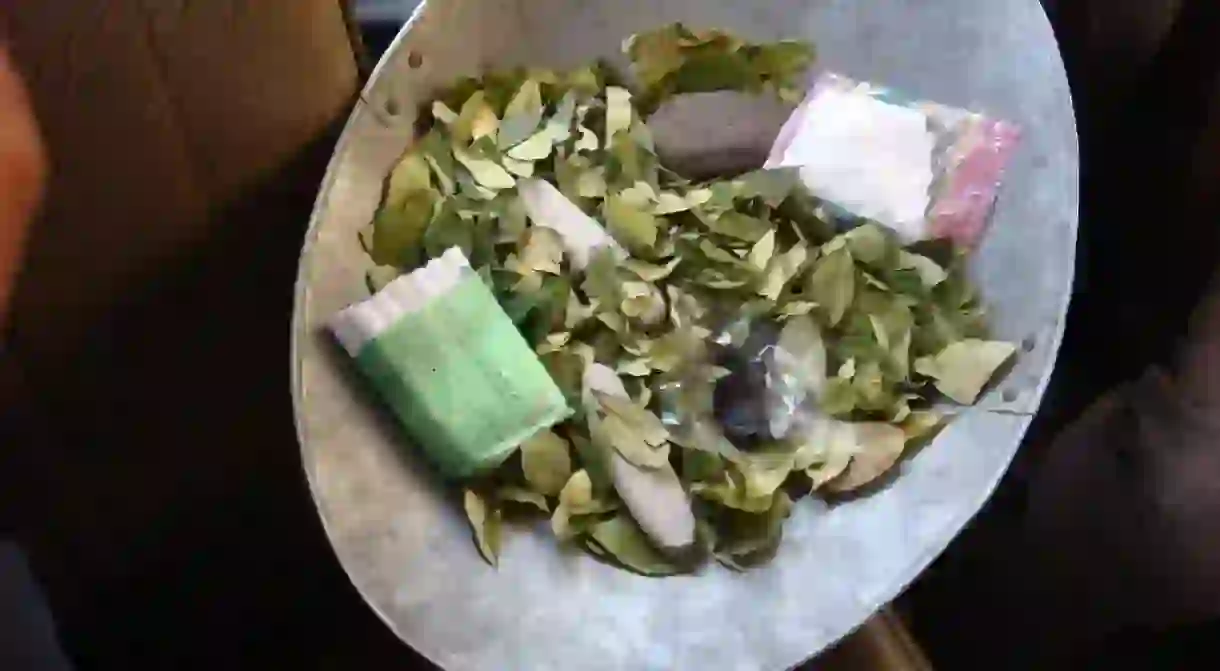Yatiris: Meet The Bolivian Fortune Tellers Using Coca Leaves to Tell The Future

In the West, psychic women tell fortunes through tarot cards while hunched over a crystal ball. In Bolivia, they have the yatiri, a revered Aymara witch doctor who calls on the power of the sacred coca leaf to gain insights into another dimension. Roughly translating to ‘he (or she) who knows,’ these Aymara priests form an integral part of modern Bolivian society.
According to tradition, the yatiri are spiritual beings that were at one point hit by lightning while attending cattle in the fields. Upon being struck, the yatiri undergo a process of spiritual rebirth in which they gain special powers, a blessing they are obliged to use for the good of the community.

Working out of small clandestine wooden huts, the yatiri can be found offering their services in any major Bolivian city. In La Paz, some operate in and around the touristy Witches’ Market. The majority, however, do their business in the neighboring Aymara city of El Alto where there is an abundance of repeat clientele.
Consultations see coca leaves tossed into the air to determine the client’s future. Fortunes are told depending on how the leaves land on the ground and cover such themes as health, romance, finance, and emotional well-being. At just 10 BOB (US $1.50) a session, many Bolivians pay regular visits to keep up-to-date with their future. Those who are unhappy with their fortunes have the option of purchasing a mesa (offering table) which, when burnt, provides spiritual cleansing and protection for at least three months. Although more expensive at 200 BOB ($US 29) a pop, true believers still see it as a worthwhile investment.

Other ceremonies can be more sinister. Some yatiri offer scorned clients the chance for revenge by placing a curse on those who have harmed them. Curses are usually cast on former lovers or business adversaries and involve the use of boiled animals such as snakes and frogs.
In Copacabana, on the shores of Lake Titicaca, a different kind of blessing ceremony takes place. In an interesting mix of Catholic and indigenous beliefs, cars are blessed outside the town’s most sacred church to grant the driver safe passage. Fireworks are launched and confetti are joyously thrown while beer is poured over the newly-blessed vehicle.
Yatiris are frequently contracted to perform offerings to Pachamama (mother nature) called Cha’lla at important government events. President Evo Morales‘ indigenous rights revolution has brought these native beliefs into mainstream society, with Catholic blessings now losing popularity to those of the Aymara.

The Catholic Church has never been a fan of these practices, historically attempting to ostracize the yatiri by branding them as pagans. But with such a large proportion of newly-empowered indigenous inhabitants in the country, the Church decided to accept the yatiri and instead look for ways the two belief systems can coexist.













